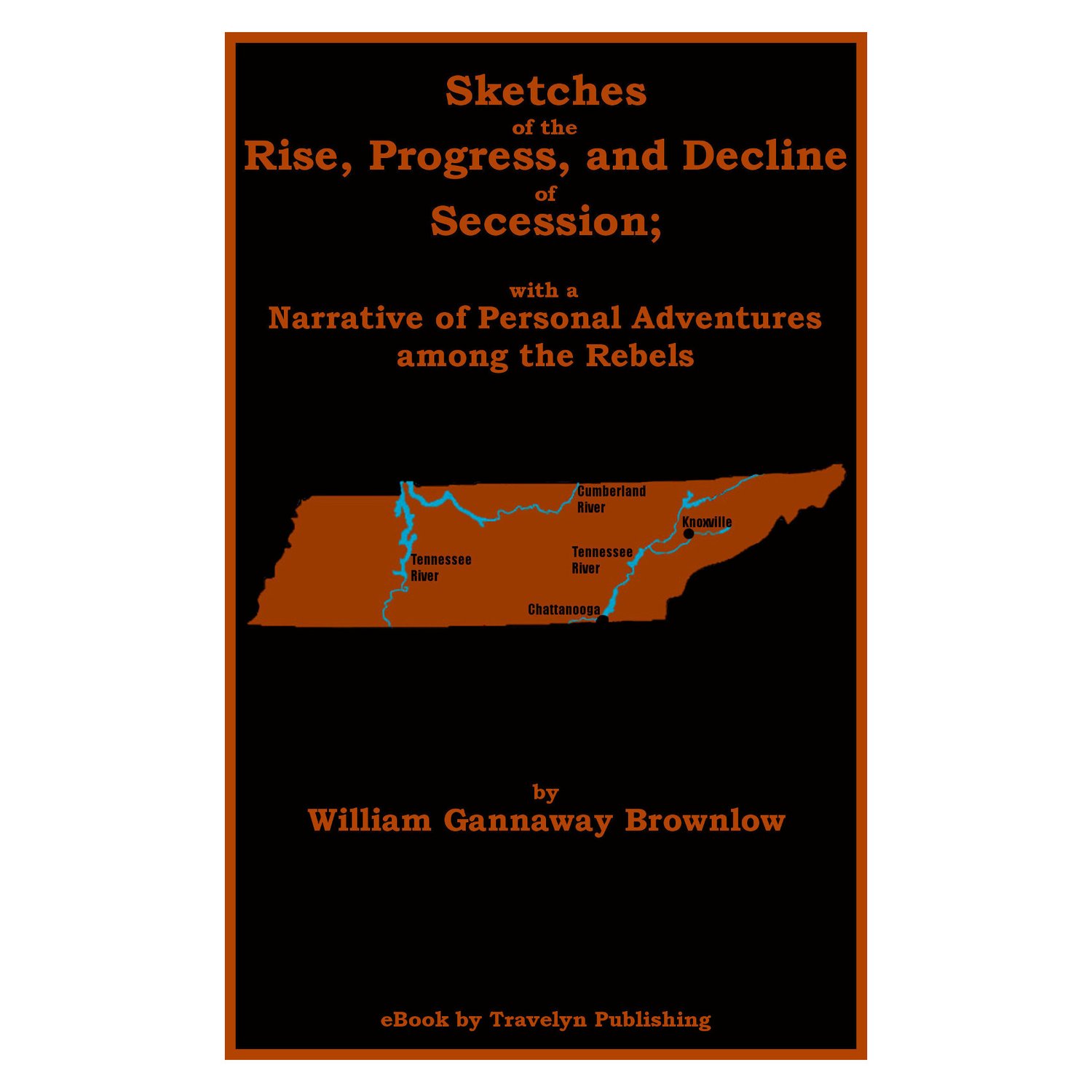
Sketches of the Rise, Progress, and Decline of Secession; with a Narrative of Personal Adventures among the Rebels
Published originally in 1862, early in the American Civil War, the causes and effects of which are its subject, this book is somewhat unusual, representing as it does that intermediate position of citizens living amidst the Southern Confederacy of rebels that instigated the American Civil war; namely, the position of a Southern supporter of the institution of slavery who nevertheless passionately sided with the Unionist Federal side in the war. There were many more of these sympathizers with the Union viewpoint in the South than the Confederacy at the time, and later apologists for the Confederacy to this day, ever wanted to admit. The Secessionists were a minority in their own Confederacy, forced to manipulate elections and subdue the population by force with armed soldiers.
William Brownlow was the owner and publisher of the primary Knoxville newspaper and therefore in a position to know whereof he speaks. He had the facts, the figures, the political history, the revealing anecdotes, and the ability to wield the English language necessary to utterly and effectively skewer the Confederacy. And skewer the Confederacy he does. It’s no wonder he was arrested, his newspaper shut down, and himself very nearly lynched—reading his words, you can easily imagine how they wounded his targets and inspired their hatred.
Preparing old books for digital publication is a labor of love at Travelyn Publishing. We hold our digital versions of public domain books up against any others with no fear of the comparison. Our conversion work is meticulous, utilizing a process designed to eliminate errors, maximize reader enjoyment, and recreate as much as possible the atmosphere of the original book even as we are adding the navigation and formatting necessary for a good digital book. While remaining faithful to a writer’s original words, and the spellings and usages of his era, we are not above correcting obvious mistakes. If the printer became distracted after placing an ‘a’ at the end of a line and then placed another ‘a’ at the beginning of the next line (they used to do this stuff by hand you know!), what sort of mindless robots would allow that careless error to be preserved for all eternity in the digital version, too? Not us. That’s why we have the audacity to claim that our re-publications are often better than the originals.
